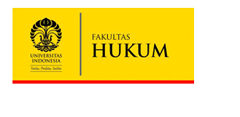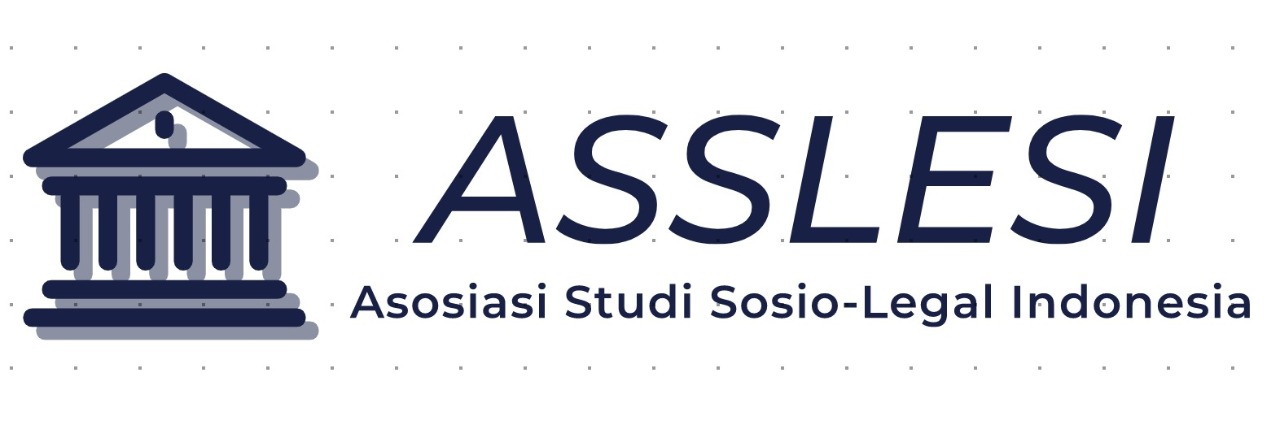Abstract
The struggle for water is one of the greatest immediate risks of the climate crisis. Therefore, the institutional challenge of water management is increasingly urgent and requires a number of consensuses to succeed, including community-based natural resource management (CBNRM). A key challenge to the traditional consensus for water conservation is the increasing need for land conversion due to population growth, which in turn deflects decision-making power away from traditional institutions towards external decision-makers such as regional governments. Using Ostrom's conceptual framework of rules of use, this research examines shifting spring water management in the context of Kabupaten Manggarai. The paper explores traditional rules of water management in the community and compares it to the institutional development of springs in four villages. Ultimately, it analyses the gap between the traditional rules of water management and the reality on the ground. The study finds that traditional community management of springs is subject to power contestation due to unclear institutional direction, which in turn emerges from opaque land and spatial planning policies and political decisions. These policies are overly economic and do not take into account traditional conservation and resources characteristics.
Bahasa Abstract
Perebutan air adalah risiko terbesar yang akan segera terjadi seiring krisis iklim. Karena itu, tantangan kelembagaan pengelolaan air semakin mendesak, termasuk melalui sejumlah konsensus global seperti SDGs (Sustainable Development Goals), dan pengelolaan sumber daya alam berbasis masyarakat atau CBNRM. Tantangan utama konsensus tradisional untuk konservasi air adalah meningkatnya kebutuhan lahan konversi akibat peningkatan populasi. Melalui penggunaan kerangka konseptual rule-in-use Ostrom, penelitian ini mengkaji pengelolaan mata air di Kabupaten Manggarai. Pertama soal aturan tradisional pengelolaan air dalam masyarakat. Kedua soal pengembangan kelembagaan mata air yang diteliti di empat desa. Terakhir, analisis kesenjangan antara aturan tradisional tentang konservasi air dengan kenyataan di lapangan. Kajian ini menemukan bahwa pengelolaan mata air oleh masyarakat yang dibangun atas dasar tradisi mengalami guncangan otoritas. Penyebabnya bersumber pada arah kelembagaan yang tidak jelas karena ketidakjelasan kebijakan dan keputusan politik tata ruang dan lahan. Berbagai kebijakan itu sarat dengan pertimbangan ekonomi dan kurang mempertimbangkan konservasi tradisional, dan karakteristik sumber daya.
References
Adji, Tjahyo N. 2005. " Kontribusi Hidrologi Karst dalam Pengelolaan Kawasan Karst." Paper presented at Workshop of Gegama, Yogyakarta, August, 2005. https://doi.org/10.31227/osf.io/fm9aj
Agrawal, Arun. 2001. "Common property institutions and sustainable governance of resources." World development 29 (10): 1649-1672
Arti, Wigke Capri. 2020. "A Sustainable Ecology Movement: Catholicism and Indigenous Religion United against Mining in Manggarai, East Nusa Tenggara, Indonesia. PCD Journal, 8 (1): 91–109.
Behailu, Beshah M., Pekka E. Pietilä, and Tapio S. Katko. 2016. "Indigenous practices of water management for sustainable services: Case of Borana and Konso, Ethiopia." Sage Open 6, no. 4: 2158244016682292.
Bonacci, Ognjen, Tanja Pipan, and David C. Culver. 2009. "A framework for karst ecohydrology." Environmental Geology 56: 891-900.
BPS. 2020. Distribusi Persentase PDRB atas Dasar Harga yang Berlaku menurut Lapangan Usaha. https://manggaraikab.bps.go.id/indicator/52/35/1/distribusi-persentase-produk-domestik-regional-bruto-pdrb-atas-dasar-harga-yang-berlaku-adhb-menurut-lapangan-usaha.html, accessed August 31, 2022
Højgaard Christiansen, Lærke, and Michael Lounsbury. 2013. "Strange brew: Bridging logics via institutional bricolage and the reconstitution of organizational identity." In Institutional logics in action, Part B, 199-232. Emerald Group Publishing Limited.
Cleaver, Frances. 2002. "Reinventing institutions: Bricolage and the social embeddedness of natural resource management." The European journal of development research 14 (2): 11-30.
Cleaver, Frances. 2017. Development through bricolage: Rethinking institutions for natural resource management. Routledge
Cole, Daniel H. 2017. "Laws, norms, and the Institutional Analysis and Development framework." Journal of Institutional Economics 13 (4): 829-847.
Cosgrove, William J., and Daniel P. Loucks. 2015. "Water management: Current and future challenges and research directions." Water Resources Research 51 (6): 4823-4839.
Daeng, Hans. 1995. "Manggarai Daerah Sengketa antara Bima dan Goa." Humaniora 2.
Decree of the Minister of Environment Number SK.1272/MENLHK/SETJEN/PLA.3/12/2021 on the Establishment of Landscape Characteristics and Vegetation Characteristics for Maps of Indonesian Ecoregions at Scale 1:250,000. 2021
De Koning, Jessica, and Frances Cleaver. 2012. "Institutional bricolage in community forestry: An agenda for future research." In Forest-people interfaces, 277-290. Wageningen Academic
Erb, Maribeth. 2016. "Mining and the conflict over values in East Nusa Tenggara province, eastern Indonesia." The Extractive Industries and Society 3 (2): 370-382.
Ford, James D., Nia King, Eranga K. Galappaththi, Tristan Pearce, Graham McDowell, and Sherilee L. Harper. 2020. "The resilience of indigenous peoples to environmental change." One Earth 2 (6): 532-543.
Fukuda‐Parr, Sakiko, and Desmond McNeill. 2019. "Knowledge and politics in setting and measuring the SDG S: Introduction to special issue." Global Policy 10: 5-15.
Gebara, Maria Fernanda. 2019. "Understanding institutional bricolage." International Journal of the Commons 13 (1): 637-659
Hall, Kurt, Frances Cleaver, Tom Franks, and Faustin Maganga. 2014. "Capturing critical institutionalism: A synthesis of key themes and debates." The European journal of development research 26 (1): 71-86
Hemo, Doroteus. 1988. Sejarah daerah Manggarai, Propinsi Nusa Tenggara Timur. Kupang: Department of Education and Culture, NTT.
Idda, Salem, Bruno Bonté, Marcel Kuper, and Hamidi Mansour. 2021. "Revealing the Foggara as a Living Irrigation System through an Institutional Analysis." International Journal of the Commons 15 (1): 431-448.
Iswandono, Elisa. 2016. "Integrasi Kearifan Lokal Masyarakat Suku Manggarai Dalam Konservasi Tumbuhan Dan Ekosistem Pegunungan Ruteng Nusa Tenggara Timur." PhD diss., IPB (Bogor Agricultural University).
Iswandono, Elisa, Zuhud, Ervizal AM, Agus Hikmat, and Nandi Kosmaryandi. 2016. "Traditional land practice and forest conservation: Case study of the Manggarai tribe in Ruteng Mountains, Indonesia." Community 8 (2): 256-266.
Iswandono, Elisa, Ervizal Amir Muhammad Zuhud, Agus Hikmat, and Nandi Kosmaryandi. 2015. "Integrating local culture into forest conservation: A case study of the Manggarai Tribe in Ruteng Mountains, Indonesia." Jurnal Manajemen Hutan Tropika 21 (2): 55-64.
Iswandono, Elisa. 2018. Budaya Konservasi Orang Manggarai. NTT KSDA Headquarters
Jackson, Sue, and Bradley Moggridge. 2019. "Indigenous water management." Australasian Journal of Environmental Management 26 (3): 193-196.
Jiang, Guanghui, Zhao Chen, Chaiporn Siripornpibul, Eko Haryono, Nam Xuan Nguyen, Thida Oo, Liza Socorro, Juanico Manzano, Sinxay Vongphachanh, Sitha Kong, and Fang Guo. 2021. "The karst water environment in Southeast Asia: characteristics, challenges, and approaches." Hydrogeology Journal 29 (1).
Krause, Franz, and Veronica Strang. 2016. "Thinking relationships through water." Society & Natural Resources 29 (6): 633-638.
Lawang, Robert MZ. 2004. Stratifikasi sosial di Cancar, Manggarai, Flores Barat, tahun 1950-an dan 1980-an. Jakarta: Faculty of Social and Political Sciences, University of Indonesia.
Lon, Yohanes S. 2015. “Fenomena Mbaru Gendang di Manggarai”. In Tantangan Inovasi Pendidikan dan Budaya di Manggarai, edited by Primus Domino, 130-147. Ruteng Manggarai: STKIP St Paulus.
Lon, Yohanes S., and Fransiska Widyawati. 2020. Mbaru Gendang, Rumah Adat Manggarai, Flores: Eksistensi, Sejarah, dan Transformasinya. Yogyakarta: PT Kanisius
Mboi, Ben. 2011. Memoar seorang Dokter, Prajurit, Pamong Praja. Jakarta: Kepustakaan Populer Gramedia.
McGinnis, Michael D. 2011. "An introduction to IAD and the language of the Ostrom workshop: a simple guide to a complex framework." Policy studies journal 39 (1): 169-183.
Merry, Sally Engle. 2011. "Measuring the world: Indicators, human rights, and global governance." Current anthropology 52 (S3): S83-S95
Moggridge, Bradley J. 2021. "Indigenous water knowledge and values in an Australasian context." Australasian Journal of Water Resources 25 (1): 1-3
Mulyani, Anny, Adi Priyono, and Fahmuddin Agus. 2013. "Semiarid soils of eastern Indonesia: Soil classification and land uses." Developments in Soil Classification, Land Use Planning and Policy Implications: Innovative Thinking of Soil Inventory for Land Use Planning and Management of Land Resources, 449-466.
NTT ESDM Department, N. 2020. Laporan Akuntabilitas Kinerja Instansi Pemerintah Dinas ESDM NTT [Performance Report]. https://esdmprovntt.com/lakip/ downloaded February 8, 2023.
Oldekop, Johan A., Katharine RE Sims, Birendra K. Karna, Mark J. Whittingham, and Arun Agrawal. 2019. "Reductions in deforestation and poverty from decentralized forest management in Nepal." Nature sustainability 2 (5): 421-428
Onac, Bogdan, P. and Philip van Beynen. 2021. “Caves and karst”. In Encyclopedia of Geology, edited by David Alderton and Scott A. Elias, 495-509. Elsevier.
Ostrom, Elinor, Roy Gardner, and James Walker. 2003. Rules, games, and common-pool resources. University of Michigan press
Ostrom, Elinor. 2011. "Background on the institutional analysis and development framework." Policy studies journal 39 (1): 7-27.
Ostrom, Elinor. 2005. Understanding institutional diversity. Princeton University Press
Ostrom, E. 2002. Common-pool resources and institutions: Toward a revised theory. Handbook of agricultural economics, 2, 1315-1339.
Ostrom, Elinor. 1990. Governing the commons: The evolution of institutions for collective action. Cambridge University Press.
Prime, Mohammad Raditya. 2016. "Tata Spasial Permukiman Tradisional Manggarai Berdasar Ritual Penti di Kampung Wae Rebo di Pulau Flores." Space 3 (2): 173-200.
Roth, Dik, Rutgerd Boelens, and Margreet Zwarteveen. 2015. "Property, legal pluralism, and water rights: the critical analysis of water governance and the politics of recognizing “local” rights." The Journal of Legal Pluralism and Unofficial Law 47 (3): 456-475.
Roth, Dik, and Gede Sedana. 2015. "Reframing Tri Hita Karana: From ‘Balinese Culture’to Politics." The Asia Pacific Journal of Anthropology 16 (2): 157-175.
Sitthisuntikul, Katesuda. 2013. "The relationship between the meaning of water and sense of place: a grounded theory study from northern Thailand." PhD Dissertation. Edith Cowan University
Strang, Veronica. 2005. "Common senses: Water, sensory experience and the generation of meaning." Journal of Material Culture 10 (1): 92-120
Sukmana. 2006. Inventarisasi Mangan di Kabupaten Manggarai dan Kabupaten Manggarai Barat, Provinsi Nusa Tenggara Timur, Proceedings of the Results of 2006 Field and Non-Field Activities, ESDM Geological Resource Center.
Suman, Kanis, (community leader in Torn village) in discussion with the researcher at Wisma Kevikepan Reo Manggarai 30 September 2022
Talitha, Tessa, Tommy Firman, and Delik Hudalah. 2020. "Welcoming two decades of decentralization in Indonesia: a regional development perspective." Territory, Politics, Governance 8 (5): 690-708.
Tukan, Simon S., and Mirisa Hasfaria. 2018. Membangun Kesadaran, Kisah-Kisah Gerakan Tolak Tambang di Manggarai Raya dengan Memanfaatkan Pengetahuan Lokal. Yogyakarta: INSISTPress.
Van der Eng, Pierre. 2010. "The sources of long-term economic growth in Indonesia, 1880–2008." Explorations in Economic History 47 (3): 294-309.
Recommended Citation
Steni, Bernadinus; Kartodihardjo, Hariadi; Adiwibowo, Soeryo; and Djakapermana, Ruchyat Deni
(2024)
"Rule-in-Use for Community-Based Springs Management Faces Land Use Pressures: Lesson Learned from Manggarai District,"
The Indonesian Journal of Socio-Legal Studies: Vol. 3:
No.
2, Article 5.
DOI: 10.54828/ijsls.2024v3n2.5
Available at:
https://scholarhub.ui.ac.id/ijsls/vol3/iss2/5
Included in
Environmental Law Commons, Indigenous, Indian, and Aboriginal Law Commons, Law and Politics Commons, Law and Society Commons, Natural Resources Management and Policy Commons, Sustainability Commons


